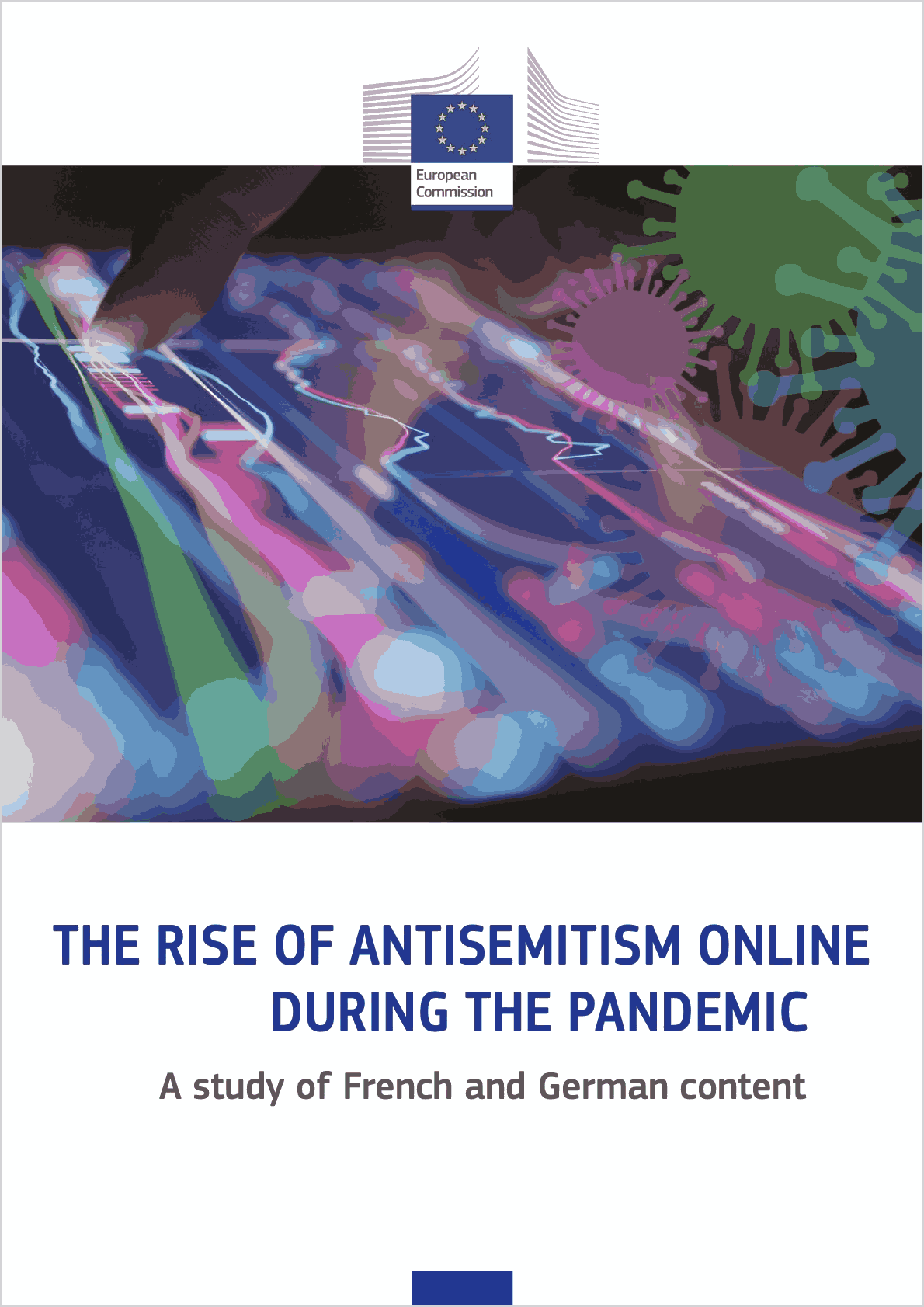The Rise of Antisemitism Online During the Pandemic: A Study of French and German Content

Published: 3 June, 2021
Authors: Milo Comerford and Lea Gerster
Since 2020, we have seen the uncertainties and anxieties around the Covid-19 pandemic being weaponised by a broad range of extremists, conspiracy theorists and disinformation actors. Antisemitism is often at the heart of these challenges, with the virus only adding to a deeply concerning trend which has seen eight in ten European Jews experiencing antisemitic abuse online, according to 2018 EU polling.
While some research has been carried out on English-language antisemitism during the pandemic, this report from ISD looks at the broader European phenomenon, presenting a data-driven snapshot of the proliferation of Covid-19 related online antisemitic content in French and German on Twitter, Facebook and Telegram.
The study provides insight on the impact of the Covid-19 pandemic on online antisemitism in France and Germany, analysing the platforms where such content is found, as well as the most prominent antisemitic narratives – comparing key similarities and differences between these different language contexts.
Drawing on social listening tools and natural language processing, combined with qualitative analysis, the report analyses over 180,000 antisemitic posts from over 500 accounts and channels, between January 2020 and March 2021. It found considerable growth in the use of antisemitic keywords during the pandemic, with a seven-fold and thirteen-fold increase in antisemitic comments across French and German channels respectively, when comparing the first two months of 2020 and 2021.
Conspiracy theories about Jews ruling international financial, political and media institutions dominated the antisemitic narratives analysed by researchers – comprising 89% of a coded sample of German antisemitic posts and 55% of French – while overt Holocaust denial was still visible across platforms despite being illegal in both France and Germany.
The report makes a range of policy recommendations on the basis of these findings, laying out the importance of a comprehensive framework for digital regulation, the need for increased awareness of the diverse manifestations of antisemitism contained within the International Holocaust Remembrance Alliance’s working definition, as well as the importance of measures to address the proliferation of ‘grey zone’ legal but harmful antisemitic content, beyond illegal hate speech.
Commissioned by the European Commission, this report will help shape and evidence the EU’s upcoming strategy on countering antisemitism, which will be presented at the end of 2021.
You can find the report on the European Commission’s website here.
